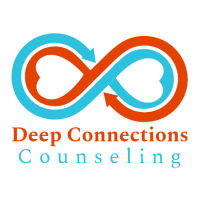How do emotionally focused therapy techniques for couples work? Can this intervention truly benefit my relationship? Learn how EFT can be effective in identifying negative interactions and rebuilding connections.
Relationships are at the core of our human experience. They’re an integral part of not only our physical, but mental health as well. Sharing positive and supportive bonds with other people can optimize our potential. And it can make us feel more fulfilled. The quality of our relationships can shape how we view ourselves and our surroundings — for better or worse.
We have an innate desire to connect with others. This is a need that transcends cultures, religions, ethnicities, gender, and language. We cultivate and nurture emotional bonds for survival when we’re young. Then for safety, security, fulfillment, and belonging when we’re older.
This is the core concept of John Bowlby’s 50 years of research, known as Attachment Theory. These attachment figures can be a source of confidence… though they can just as easily be a source of distress and anxiety.
Intimate romantic relationships, in particular, can be a safe haven to protect us from external stressors. They can also help us explore our surroundings with curiosity.
That being said, the complex nature of these relationships can be challenging, too. Conflicting patterns of communication and interaction can put a strain on the relationship. As a result, both sides feel lonely, hurt, and misunderstood. This is where emotionally focused therapy techniques come in.
What Is Emotionally Focused Therapy and How Does It Work?
Emotionally focused therapy is a psychotherapy approach that helps couples address the emotional fabric of negative self-perpetuating cycles. Its aim is to rebuild trust and reestablish or strengthen the connection they share. Drs. Sue Johnson and Les Greenberg developed EFT in the early 80s. It’s deeply rooted in Bowlby’s Attachment Theory. And it adheres to the philosophy that our emotions are connected to our needs.
As a result, working through them can help us better understand our partner’s emotions as well as our own. That way, we can get out of distressing emotional states and improve our intimate relationships.
EFT has been found to help couples shift from a state of distress to recovery in 10 to 12 sessions. This is true for about 70% to 75% of cases. And studies show tremendous improvements in 90% of the couples seeking EFT therapy.

Emotionally Focused Therapy Techniques for Couples
Emotionally focused therapy techniques help couples gain a better perspective on relationship health and dysfunction. Its main goal is to repair relational and intimate bonds.
EFT is a short-term approach (8 to 20 sessions). A form of psychotherapy, it helps restructure fundamental emotional responses to generate a positive change in the couple’s patterns of interaction. This leads to the creation of a strong bond between partners.
EFT involves techniques like learning to reframe your thoughts and distinguishing between those and your feelings. This can help you better articulate your emotional state to your partner. As a result, you can more easily identify the exact cause of distress in your relationship.
Understanding how you and your partner respond to particular situations and events gives you some insight into your interactional patterns. Ultimately, you can learn to let go of harmful responses and foster healthier, more appropriate ones.
De-escalation is key to emotionally focused therapy techniques. The approach encourages you to cultivate more awareness around how you express your emotions — particularly the consequences of doing so and how this affects your partner. This way, you can develop more positive narratives and interaction cycles to move past your old coping mechanisms.
Bottom Line? EFT Works
The body of research supporting and solidifying the positive effects of EFT on couples is truly impressive. It is helping us gain a deeper understanding of the underlying mechanisms that govern romantic relationships. And this allows us to examine the cycles and patterns that increase distress as well as those that soothe it.
By understanding how we develop and maintain intimate bonds as human beings, you can shape the quality and nature of your relationships. Schedule an appointment with certified EFT therapist Kinga Gudor. Learn how to relieve distress, reestablish trust, and strengthen the intimate bond you share with your partner.

Kinga Gudor, PhD
Kinga is a Licensed Clinical Social Worker (LCSW) with more than 15 years of experience. She specializes in couples therapy and working with individuals from a multicultural background.











